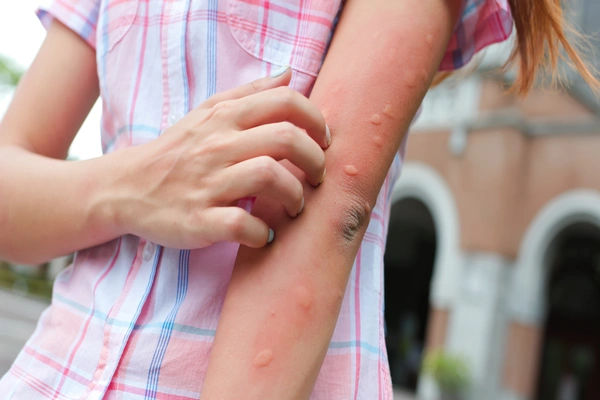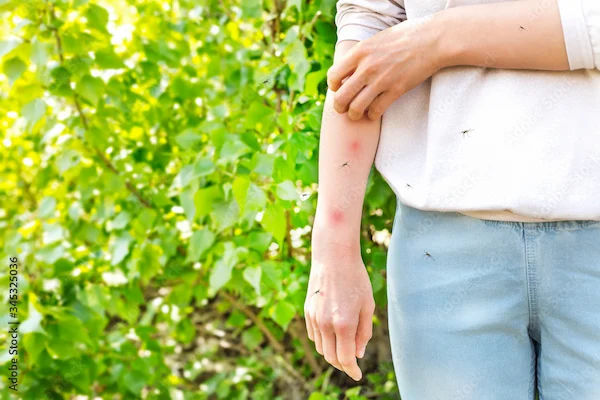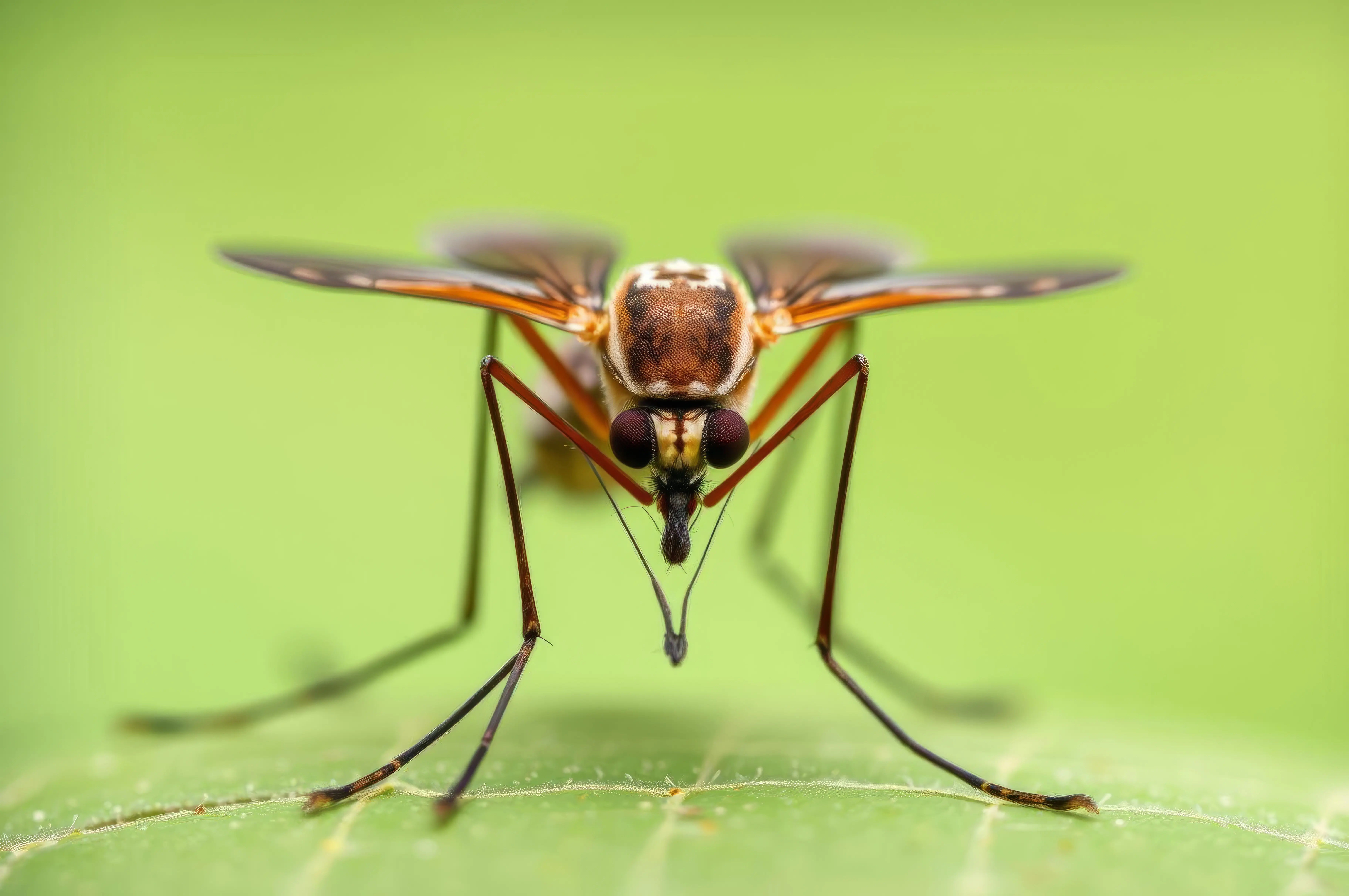How Long Does Malaria Recovery Take? A Realistic Timeline
Know about the malaria recovery, faces of malaria, recovery timeline, factots which influence recovery and tips for faster recovery and more.

Written by Dr. D Bhanu Prakash
Reviewed by Dr. Rohinipriyanka Pondugula MBBS
Last updated on 13th Jan, 2026

Introduction
Malaria is more than just a fever; it's a taxing experience that leaves your body weakened and yearning for normalcy. A common question for anyone battling this mosquito-borne illness is, "How long until I feel like myself again?" The truth is, malaria recovery time isn't a one-size-fits-all answer. It varies significantly based on the severity of your infection, the specific parasite, and your overall health. This guide will walk you through a realistic malaria recovery timeline, from the first dose of medication to the final stages of regaining your energy. We'll explore what to expect week-by-week, the factors that influence your healing process, and practical tips to support your body through this challenging period. Understanding this journey is the first step toward a full and healthy recovery.
The Two Faces of Malaria: Uncomplicated vs. Severe
The single biggest factor determining your recovery time is whether you have uncomplicated or severe malaria. This distinction dictates the treatment protocol and, consequently, the healing journey.
What is Uncomplicated Malaria?
Uncomplicated malaria presents with classic symptoms but without signs of vital organ dysfunction. Think of it as the standard form of the disease. Symptoms include high fever with chills and sweating, headache, nausea, vomiting, body aches, and general fatigue. While intensely unpleasant, these cases are typically managed with oral antimalarial medications on an outpatient basis. The recovery timeline for this form is more predictable.
What Defines Severe Malaria?
Severe malaria is a medical emergency. It occurs when the infection leads to serious complications and clinical evidence of organ failure. According to the WHO, criteria include impaired consciousness (e.g., coma), severe anaemia due to the destruction of red blood cells, acute kidney failure, respiratory distress, low blood pressure, and blood coagulation abnormalities. This form, most commonly caused by P. falciparum, requires immediate hospitalisation, intravenous (IV) antimalarial drugs, and supportive care. The recovery period is inevitably longer and more complex.
Consult Top Specialists for Personalised Tips
Standard Malaria Recovery Timeline: What to Expect
Phase 1: Initial Treatment Response (First 48-72 Hours)
Once the correct antimalarial treatment begins, patients usually experience a rapid improvement in the most acute symptoms. High fevers begin to subside, intense chills stop, and the severe headache often lessens. This initial phase is about controlling the parasitic infection. For uncomplicated cases on oral medication, this swift response is a positive sign that the treatment is effective.
Phase 2: The Main Recovery Period (Days 3-14)
This is the core of the malaria recovery process. While the parasite is being cleared, the body is dealing with the aftermath of the infection. It's completely normal to experience persistent, debilitating fatigue, general weakness, and a lack of appetite. This is not a sign that the treatment is failing; it's a sign that your body is diverting energy to heal. Most people with uncomplicated malaria will feel significantly better and be able to resume light activities within 7-10 days, though full strength has not returned.
Phase 3: Regaining Strength & The Convalescence Period (2-4 Weeks+)
The convalescence period is often the most underestimated part of recovering from severe malaria and even bad cases of uncomplicated malaria. The clinical infection may be gone, but the body needs time to rebuild. Key features of this phase include:
Post-malaria weakness: Profound fatigue can linger for weeks.
Anaemia: The malaria parasite destroys red blood cells, leading to anaemia, which directly causes weakness, dizziness, and shortness of breath. The body needs time to regenerate these cells.
Slow return to full capacity: It may take a month or more to feel 100% again. Pushing too hard, too soon, can prolong this phase.
Key Factors That Influence Your Malaria Recovery Time
1. Type of Malaria Parasite
The species of the Plasmodium parasite matters. P. falciparum is the most dangerous and can cause severe illness, leading to a longer recovery time. P. vivax and P. ovale can form dormant liver stages (hypnozoites) that can reactivate weeks or months later, causing a relapse. This means "recovery" isn't complete until these dormant forms are also treated with a separate drug like primaquine.
2. Timeliness and Accuracy of Treatment
The sooner effective treatment is started, the less damage the parasite can do. A delay in diagnosis and treatment allows the parasite load to increase, worsening symptoms and potentially leading to complications that extend the hospital stay for malaria and the overall convalescence period. Furthermore, drug-resistant strains of malaria can complicate treatment and prolong illness.
3. Your Age and General Health
Very young children, older adults, and individuals with compromised immune systems or pre-existing conditions (like malnutrition, HIV, or chronic diseases) often face a more prolonged and difficult recovery. Their bodies have a harder time fighting the initial infection and rebuilding afterwards.
4. Immune Status and Previous Exposure
Individuals living in endemic areas who have survived previous malaria infections often develop partial immunity. This "semi-immunity" means they may experience milder symptoms and recover more quickly from subsequent infections compared to a non-immune traveller who is experiencing malaria for the first time.
Tips for a Faster and Smoother Recovery from Malaria
It includes:
Hydration and Nutrition: Fueling Your Body
Fever and sweating lead to fluid loss, and loss of appetite can cause nutrient deficiencies. Prioritize:
Fluids: Drink plenty of water, oral rehydration solutions (ORS), coconut water, and clear soups.
Nutrition: Eat small, frequent meals rich in iron (leafy greens, lentils, lean red meat) to combat anaemia, protein (eggs, chicken, fish) for tissue repair, and complex carbohydrates (whole grains, oats) for energy.
The Power of Rest: Listening to Your Body
This is non-negotiable. Your body is using immense energy to heal. Do not rush back to work or strenuous activities. Allow yourself to sleep and rest without guilt. Pushing through fatigue will only set back your recovery time.
Managing Post-Malaria Weakness and Anaemia
Continue eating an iron-rich diet. Your doctor may recommend iron supplements if anaemia is significant. Gentle activities like short walks can be started as energy returns, but listen to your body and stop if you feel tired.
When to Seek Further Medical Attention
While fatigue is expected, certain symptoms during or after treatment warrant immediate medical consultation. Contact a doctor if you experience:
A return of high fever after it had initially subsided.
Persistent vomiting is preventing you from keeping fluids or medication down.
Signs of severe dehydration (e.g., very dark urine, dizziness when standing).
Confusion, extreme drowsiness, or seizures.
Difficulty breathing or severe abdominal pain.
Jaundice (yellowing of skin or eyes).
Conclusion
Recovering from malaria is a marathon, not a sprint. While antimalarial drugs work quickly to kill the parasite, the journey back to full health requires patience and self-care. Understanding the realistic malaria recovery time, from the initial days of treatment to the extended convalescence period, can help you set appropriate expectations and avoid frustration. Remember that lingering fatigue and weakness are a normal part of the process. By prioritising relentless rest, intentional hydration, and nutritious, iron-rich foods, you provide your body with the essential tools it needs to rebuild. Listen to your body's signals, and don't rush your return to normal activities.
Consult Top Specialists
Consult Top Specialists for Personalised Tips

Dr. Srujana Mulakalapalli
General Physician/ Internal Medicine Specialist
5 Years • MBBS, MD (GENERAL MEDICINE)
Bengaluru
Apollo Medical Center, Marathahalli, Bengaluru
(25+ Patients)

Dr Syed Mateen Pasha
General Physician
2 Years • MBBS
Bengaluru
PRESTIGE SHANTHINIKETAN - SOCIETY CLINIC, Bengaluru

Dr. Vivek D
General Physician
4 Years • MBBS
Bengaluru
PRESTIGE SHANTHINIKETAN - SOCIETY CLINIC, Bengaluru

Dr. Harshendra Jaiswal
General Physician/ Internal Medicine Specialist
12 Years • MBBS , MD (General medicine)
Kolkata
108 DHANA DHANVANTARI Clinic, Kolkata
(25+ Patients)

Dr. Syed Ismail Ali
General Practitioner
7 Years • MBBS
Hyderabad
Apollo 24|7 Clinic, Hyderabad
Consult Top Specialists

Dr. Srujana Mulakalapalli
General Physician/ Internal Medicine Specialist
5 Years • MBBS, MD (GENERAL MEDICINE)
Bengaluru
Apollo Medical Center, Marathahalli, Bengaluru
(25+ Patients)

Dr Syed Mateen Pasha
General Physician
2 Years • MBBS
Bengaluru
PRESTIGE SHANTHINIKETAN - SOCIETY CLINIC, Bengaluru

Dr. Vivek D
General Physician
4 Years • MBBS
Bengaluru
PRESTIGE SHANTHINIKETAN - SOCIETY CLINIC, Bengaluru

Dr. Harshendra Jaiswal
General Physician/ Internal Medicine Specialist
12 Years • MBBS , MD (General medicine)
Kolkata
108 DHANA DHANVANTARI Clinic, Kolkata
(25+ Patients)

Dr. Syed Ismail Ali
General Practitioner
7 Years • MBBS
Hyderabad
Apollo 24|7 Clinic, Hyderabad
More articles from Malaria
Frequently Asked Questions
How long does malaria weakness last?
Post-malaria weakness can persist for several weeks, and sometimes even a month or two, especially after a severe infection. This is due to the combined effects of anaemia, the body's energy expenditure on healing, and the inflammatory response to the infection.
Can malaria come back after treatment?
Yes, in two ways. A recrudescence happens if the initial treatment was ineffective (e.g., drug-resistant parasite) and the blood infection returns. A relapse is specific to P. vivax and P. ovale, where dormant liver stages reactivate later, causing a new episode of illness weeks or months after the first infection.
What is the best diet for malaria recovery?
Focus on a diet high in iron (spinach, lentils, dates, lean meat) to combat anaemia, adequate protein (eggs, poultry, fish) for repair, and plenty of fluids (water, ORS, soups) to rehydrate. Easy-to-digest foods like khichdi, porridge, and fruits are excellent choices.
Why is my recovery from malaria taking so long?
A prolonged recovery time can be due to several factors: the severity of the initial infection, significant anaemia that needs time to correct, an underlying health condition, or not getting enough rest during the critical convalescence period. If you're concerned about your slow progress, consult a doctor online with Apollo24|7 to rule out any complications.
When can I return to work after malaria?
This depends entirely on the nature of your job and the severity of your illness. For a desk job after uncomplicated malaria, you might return within a week or two. For a physically demanding job or after severe malaria, you may need 3-4 weeks or more. Always ensure you have your doctor's clearance before returning.




.webp)